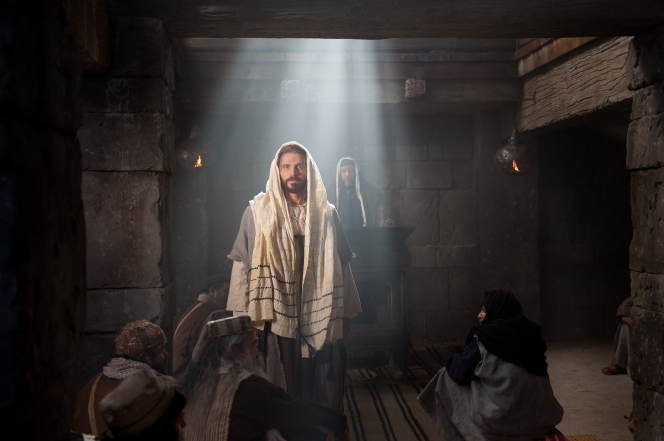Idaho, USA
In a 2006 General Conference talk Elder Robert D. Hales invited the congregation to open their scriptures and look at the purpose of the Book of Mormon.
Will you open with me the cover of the Book of Mormon? Look on the title page. We read that it is “written by way of commandment, … by the spirit of prophecy and of revelation.” It has “come forth by the gift and power of God,” and its interpretation is “by the gift of God”—by the Holy Ghost. It shows “what great things the Lord [has] done” and has given to us “that [we] may know the covenants of the Lord,” that we might not be “cast off forever.” Most importantly, it has been written to convince us “that Jesus is the Christ, the Eternal God.”
Turn the page again, to the introduction. Here we learn that this prophetic record is “holy scripture comparable to the Bible.” It contains “the fulness of the everlasting gospel, … outlines the plan of salvation, and tells [us] what [we] must do to gain peace in this life and eternal salvation in the life to come.” It promises each of us that “all who will come unto [the Savior] and obey the laws and ordinances of his gospel may be saved.”
Elder Hales was talking specifically about the Book of Mormon, but the principles behind why we have scriptures apply to all scriptures. The reason the Lord wants us to have them is as follows:
- It shows “what great things the Lord [has] done” and has given to us “that [we] may know the covenants of the Lord,” that we might not be “cast off forever.”
- [They have] been written to convince us “that Jesus is the Christ, the Eternal God.”
- [They promise] each of us that “all who will come unto [the Savior] and obey the laws and ordinances of his gospel may be saved.”
Note that these are the eternal truths of the gospel plan, otherwise known as the plan of salvation. These are the basic laws and truths that govern God’s people of all ages. Continuing on with his focus on the Book of Mormon Elder Hales turns his attention to Lehi, who sent his sons back to Jerusalem to get the brass plates. The Lord commanded him to obtain them for good reason, which we will look at in a moment. Once the plates were in their possession, Lehi sat down and began a search of the plates.
As Lehi searched the plates, he learned what all of us learn by studying the scriptures:
Who we are.
What we can become.
Prophecies for us and for our posterity.
The commandments, laws, ordinances, and covenants we must live by to obtain eternal life.
And how we must live in order to endure to the end and return to our Heavenly Father with honor.So essential are these truths that Heavenly Father gave both Lehi and Nephi visions vividly representing the word of God as a rod of iron. Both father and son learned that holding to this strong, unbending, utterly reliable guide is the only way to stay on that strait and narrow path that leads to our Savior.
This quote broadens our view of why we have scriptures. The truths they contain are so essential that the Lord compares them to an iron rod which will safely lead us through all of life’s challenges back to His presence. But the prophets have added a caveat, we can’t let go of that rod. The truths the scriptures contain are absolutely essential to our safety if we want to return to the Lord. We must cling to those truths tenaciously if we are to be successful in getting to come to experience for ourselves the love of God.
No Scriptures
So what happens to a people who know the gospel well, but lose their scriptures? This was the case with the Mulekites in the Book of Mormon. They were Jews, raised in the holy city under the law of Moses. When the Lord led them to the promised land he let them go without scriptures as an example to the rest of us so we can see clearly the need for scriptures.
We don’t see the Mulekites until about 400 years into the Book of Mormon narrative. They came with no scriptures, and in those four centuries had lost not only their religion, but their language. They no longer believed in a creator. Elder Hales teaches this valuable lesson in these words:
The fate of these civilizations, as recorded in scripture, is a testimony to all the world: if we don’t have the word of God or don’t cling to and heed the word of God, we will wander off in strange paths and be lost as individuals, as families, and as nations.
Elder Richard G. Scott said in a 2011 General Conference talk that we never need worry about whether what we read in the scriptures is correct. The scriptures were all written under the influence of the Holy Ghost and they all contain the word of God as given us from the Lord himself.
Because scriptures are generated from inspired communication through the Holy Ghost, they are pure truth. We need not be concerned about the validity of concepts contained in the standard works since the Holy Ghost has been the instrument which has motivated and inspired those individuals who have recorded the scriptures. …
The scriptures provide the strength of authority to our declarations when they are cited correctly. They can become stalwart friends that are not limited by geography or calendar. They are always available when needed. Their use provides a foundation of truth that can be awakened by the Holy Ghost. Learning, pondering, searching, and memorizing scriptures is like filling a filing cabinet with friends, values, and truths that can be called upon anytime, anywhere in the world.
Finally, one last quote from Elder Hales: “when we want to speak to God, we pray. And when we want Him to speak to us, we search the scriptures.”
The scriptures are the universal bank of truth containing the core of the gospel of Christ for all generations of time. They apply in any generation and in any culture or language.
In the next article we’ll look at the relationship between prophets and God’s people, as well as prophets and the scriptures.
Learn more about the Holy Scriptures and the Power of God here
Latest posts by Kelly Merrill, Moroni Channel (see all)
- Tabernacle Choir wowed Philippine Senate following invitation from Senate President Zubiri - February 28, 2024
- Tabernacle Choir to Perform for the Philippine Senate - February 28, 2024
- Tabernacle Choir and Orchestra at Temple Square Delights Filipino Fans with “Himig ng Pag-asa” Tour Debut - February 24, 2024
- Philippines surprise TabChoir with a cultural performance during their welcome dinner - February 23, 2024



